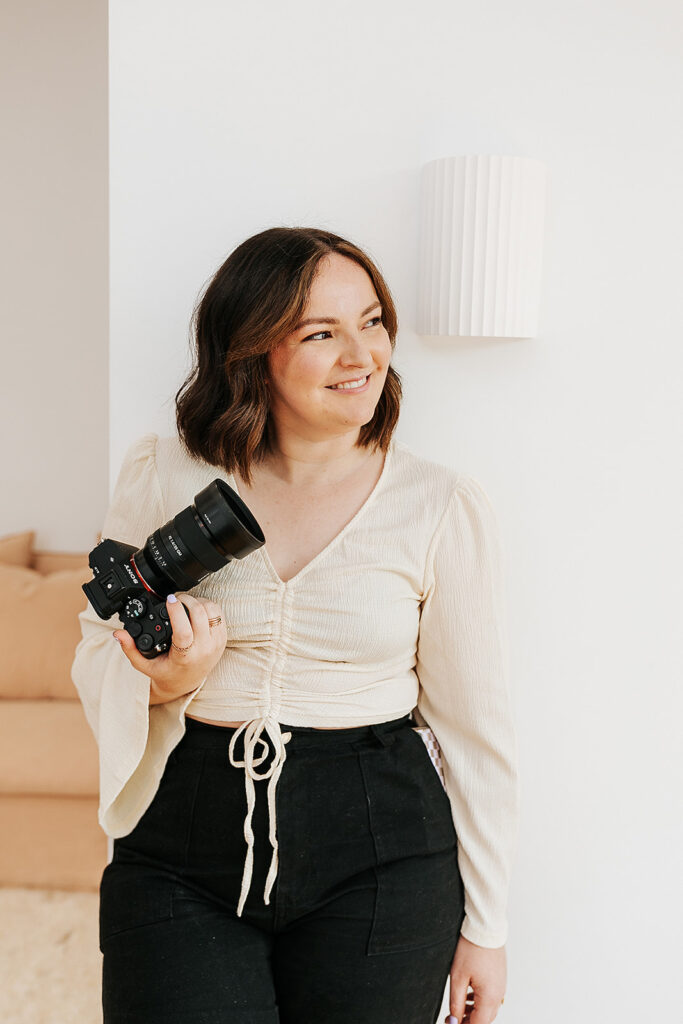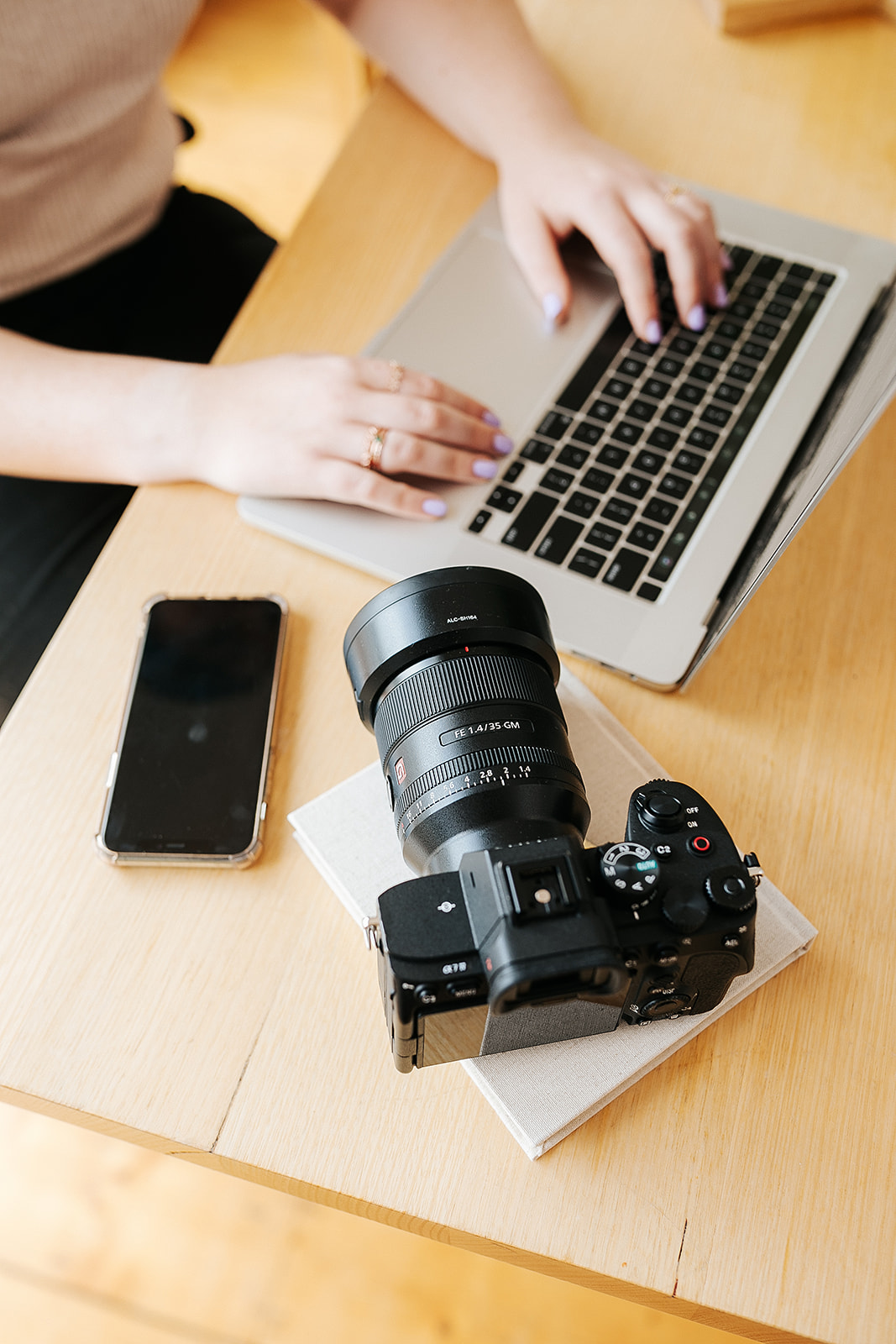Equipment is pretty much at the core of any photographer’s business, but the overwhelming nature of all the gadgets and gizmos out there can make your head spin. And that’s the thing, right? You can drop some serious coin on your photography toolkit – but are you buying the right things or just spending extra moola?
I like to make sure I buy the essential equipment for wedding photography that’s going to stand the test of time – from there, you can always add more luxury items that are a little less practical. Especially with the price tags these days! I’ll outline the best gear for wedding photography: what you need and why you need them. Sit back, relax and take note of the essential wedding photography equipment list.

Photography Toolkit Must-Haves
Wedding Photography Gear
Camera Body
When it comes to the essential equipment needed for wedding photography, a good camera body is a must! I recommend a mirrorless camera body so you can learn settings in real-time, and see the changes as they’re made on the screen.
Backup Camera
There will always be something that could go awry – get a backup camera. And, if you can, make it the same as your primary shooter – this means they will both have the same settings and make swapping between the two seamless. If your budget starting out doesn’t allow for that, that’s ok! Just buy a mid-range camera, that will do the trick well too.
Lenses For Wedding Photography
A medium zoom lens can remain on your camera most of the time because it can handle both wide and tight shots, take beautiful portraits and with a wide aperture range you can get good images in low light too. A good medium zoom lens is a 24-70 f2.8.
A telephoto lens is perfect for those long-distance shots! This can be during the ceremony or even the first dance, as you can be sneakily hidden in the distance and still get some good close-up shots of the beautiful couple. A good 70-200mm can help with this.
Using a prime lens for wedding photography gives you a lovely shallow depth-of-field look, allowing you to shoot on faster apertures and keep your photos sharp and crisp.
Having a wide angle lens for wedding photography is very handy if you want to encapsulate the setting of the wedding, by getting more of the space, architecture or landscape – as well as for those large group shots.
Speedlights
These bad boys are GOLD in my photography toolkit. They can elevate your photography quite nicely by preventing dark and grainy shots in spaces like churches or in the evening when light is low. They plump up your shots in a fine way – making them look Hollywood-esqe – and you can control your highlights and shadows more accurately.
Memory Cards & Batteries
Shots, shots, shots, shots! Weddings are full of tequila for the guests and other types of shots for the photographers – and this means your memory card space is going to be used up really quickly! Not to mention how much space RAW images take up.
Your camera’s ability will determine your memory card sizes. For example, I use a Sony A74 and the file sizes require me to have 2x 128gb SD cards with 170mb/s write speed so I don’t have buffer lagging when shooting fast at a wedding
You can go through two sets of batteries for both your camera and speed lights, so get your hands on rechargeable batteries to be more green and kind to our planet!
Tripod & Light Stands
Sometimes you need a bit more stability in order to create stunning sharp low-light photos, especially at night. Tripods can give you the freedom to play a bit more with your shutter speed and get creative.
Light stands are an easy way to control those areas that seem a bit too dark. You don’t have to get expensive ones, just find ones that are stable – especially since you’ll be mounting valuable speedlights on top of them!
Flash Diffuser For Wedding Photography
This can really make a difference in your photography, especially in softening portraits. The easy part of using flash diffusers is that they can be used on the go if you don’t have time to set up flashes.

Wedding Photography Software
Here’s the essential collection of software in my photography toolkit that I recommend to anyone starting out:
- Showit: to build your website
- Studio Ninja: to help you automatically book clients (ASHLEIGH50 gets you 50% off!)
- Xero: for accounting
- Lightroom: the best editing software for wedding photography
- Imagine AI: as above, but this is an AI-powered photo editing solution for Lightroom!
- Narrative Select: to help with image culling
- Pic-Time: for hosting final images that clients can download
- Narrative Publish: to create a beautiful blog in minutes
These tips for building an essential photography toolkit will help you get set up and well on your way to creating professional looking wedding photography! When starting out, having a mentor can really help expedite your progress and that’s why I offer 1-to-1 coaching. Get in touch if you’d like help navigating your new adventure as a solopreneur. Plus, get my free photography marketing guide here!
